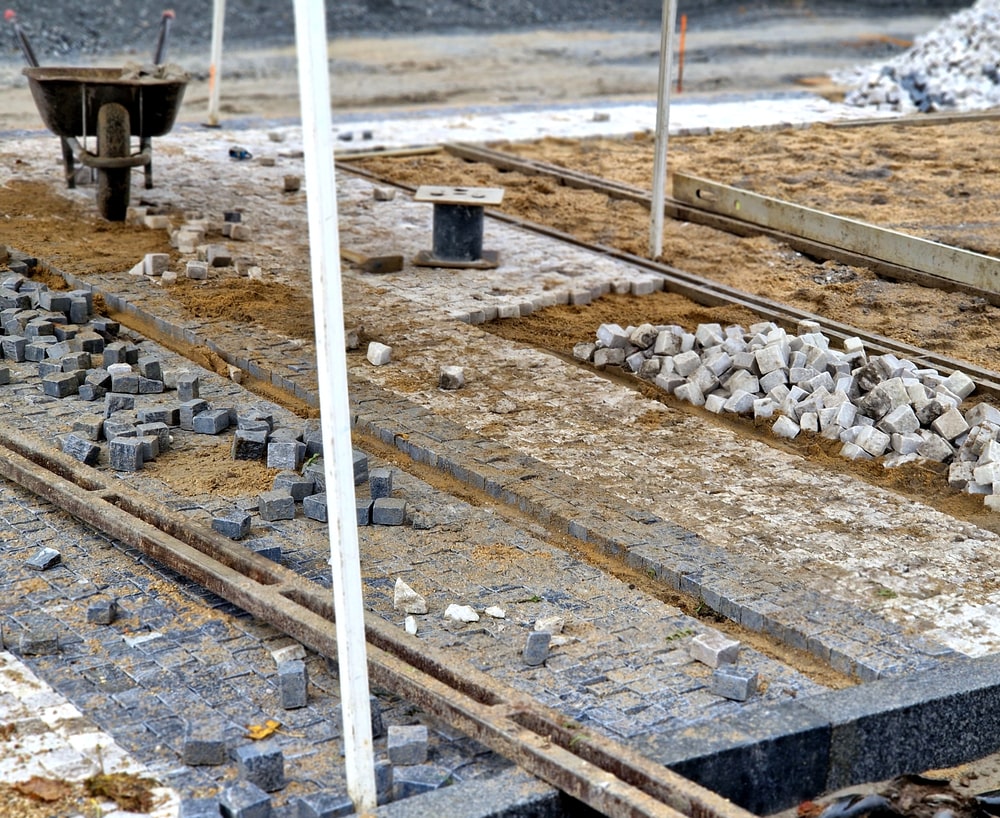
Planning work on Concrete Driveways in Columbus, OH often raises questions about permits, apron repair, and how wide a driveway can be. Local Concrete Contractors handle these rules every day, and they help homeowners stay compliant while improving curb appeal across Clintonville, Olde Towne East, Westerville, and Grove City. This guide explains what triggers a permit, how right-of-way inspections unfold, and how to keep Concrete Driveways on schedule in Columbus, OH.
When Columbus requires a driveway permit
Begin with a site review by registered Concrete Contractors. The contractor measures the existing slab, the apron at the street, and any sidewalk tie-in points. If your scope includes apron repair, driveway widening, a new curb opening, or changes within the right-of-way, Columbus, OH requires a permit. In addition, submittals should show edges, slope, control joints, and drainage and grading so reviewers can approve the plan quickly for Concrete Driveways. Because reviewers want clarity, include a simple site plan, dimensions, and notes on reinforcement and finish.
What apron repair and widening reviews include
On demo day, crews mark utilities and remove the slab by tear-out. Next, they correct the subgrade and compact a 304 limestone base. For apron work, teams set forms to match city profiles and curb lines. They place reinforcement per plan, often #4 rebar on chairs or welded wire in the field. A 4,000 psi air-entrained mix supports freeze-thaw durability for Concrete Driveways in Columbus, OH. Moreover, crews lay out control joints at consistent spacing and saw-cut them on time. They also set expansion joint filler where the driveway meets the walk or garage slab. As a result, the installation meets inspection targets and performs well through winter.
Pricing that reflects permits and right-of-way work
Budgets include removal, haul-off, square footage, driveway thickness, reinforcement, and finish. Permit-related items add line entries. Expect fees for the permit itself, possible bonds, and any traffic control on narrow streets in German Village or the Short North. Apron repair pricing reflects right-of-way formwork and inspection time. Widening can add base depth, forms, and landscape restoration along the sides of Concrete Driveways in Columbus, OH. Decorative choices like a stamped border or an exposed aggregate apron also affect totals. Therefore, ask Concrete Contractors for a written scope that lists base depth, mix design, joint spacing, apron details, and sealer so cost factors are easy to compare.
Safety and compliance
Columbus, OH reviews protect drainage, sidewalks, and streets. Apron slopes and sidewalk cross-slope must meet city limits to prevent ponding and trip hazards. Downspouts cannot discharge across public walks. If you request driveway widening, side-yard and flare limits keep approaches safe near the curb. Choose Concrete Contractors who are bonded and registered with the City of Columbus and who schedule inspections promptly. Additionally, qualified Concrete Contractors maintain barricades, follow PPE, and keep walkways accessible for neighbors during work on Concrete Driveways.
How permits affect timeline and cost
Most projects finish in three to five working days after permit approval. On day one, crews handle tear-out and subgrade shaping. The second day sets forms, rebar, base prep, and any apron or curb tie-ins. By day three, the team manages the pour, finishing, and timely saw-cuts. Inspections occur at set points, usually forms and final. Curing runs at least seven days before light vehicles return, with full strength near 28 days. Weather matters in Columbus, OH. During summer, crews pour early and manage moisture carefully. During cold snaps, insulating blankets and a longer cure protect freeze-thaw durability on Concrete Driveways. Build inspection windows into the plan and communicate milestones with your Concrete Contractors.
Maintenance after approval
After approval, protect edges and joints so the apron and field slab stay stable. Keep de-icers off new concrete in the first winter. Reroute downspouts to prevent washout along the sides. Plan maintenance and sealing every two to three years. A broom finish often takes a breathable acrylic. Exposed aggregate frequently benefits from a penetrating sealer with a traction additive. Inspect control joints each spring and remove weeds that trap moisture. These habits extend the life of Concrete Driveways across Columbus, OH, and they reduce warranty calls for Concrete Contractors.
When permits are most likely
You will almost always need a permit if the scope includes apron repair, widening that moves the edge closer to the lot line, changing the sidewalk tie-in, or adding a new curb opening. Work fully on private property without apron changes may not trigger the same steps; however, always confirm. Registered Concrete Contractors can check requirements with the city before you commit to a layout for Concrete Driveways in Columbus, OH. As a result, you avoid redesigns, delays, and extra inspection fees.
What’s next
To learn how curing, sealing, and warranties protect your new surface, continue to the next post: Curing, Sealing and Warranty Tips.
FAQs
Do I need a permit for apron repair
Yes. Work in the right of way usually requires a Columbus permit and inspection. Your contractor should handle submittals and timing.
Can I widen my driveway to the property line
There are limits. Side yard setbacks and flare widths apply. A registered contractor can show options that pass review.
What finish is allowed at the apron
Plain or lightly textured concrete is typical at the right of way. Decorative borders are often fine on private property. Confirm during permitting.
Who schedules inspections
Your contractor coordinates forms and final inspections with the city. Be sure the schedule includes inspection windows.
